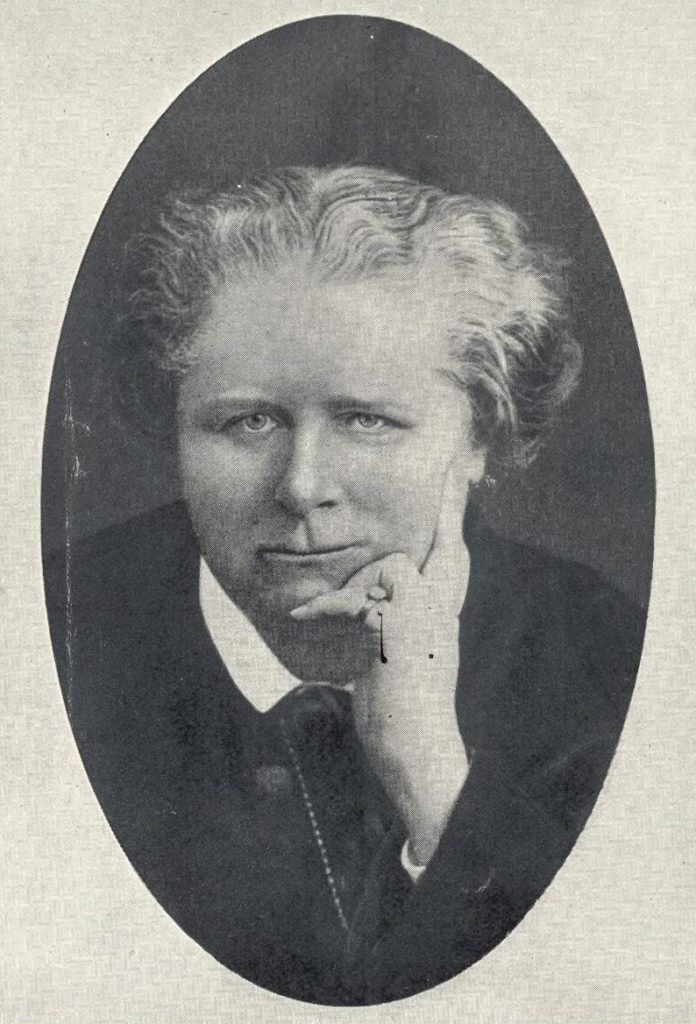The youngest child and only daughter of Charles Cobbe and Frances Conway, Frances spent her formative years in Newbridge, in what she referred to as ‘the happiest hours of my life’.
She recalls her mother being well read, with a wide vocabulary. She fondly remembers her mother’s ‘sweet touch of the piano,’ and ability to speak French ‘perfectly well’. These accomplishments were praised by her Frances Power Cobbe, who considered them skilful by the standards ‘of female education in her [mother’s] generation.

Figure 1 ‘The Duties of Women’ a series of lectures delivered and later published by Frances Power Cobbe in 1881
Writing in later life, Frances’ remembers her mother, as a singularly old-worldly image of handsome and delicate femininity. Reminiscent of earlier ideals and elucidative yet distinct from her view of her own generation. Between mother and daughter Cobbe their differing outlooks on ‘womanhood’ demonstrate how far societal views of women had changed in the nineteenth century. Frances believed in the Darwinist view that progress was evolutionary and that the natural next step was the advancement of women.
Be that as it may the younger Frances’ education left a lot to be desired by our modern day standards of education. The young Frances was sent to boarding school in Bristol and thought with regard to ‘female accomplishment’ and ‘usefulness’. Music, in the form of the piano and the harp, learning to dance and European languages, coupled with rote learning passages of English prose was the extent of her formal education.

Figure 2 John Egan, Portable Harp, similar to the one Frances Power Cobbe would have played
Throughout her life Frances was to challenge this approach to female education. Not least in the education she collected from her travels as a single woman, daringly completed mostly alone. Over eleven months, the solivagant Frances visited Paris, Nice, Rome, Naples, Sicily, Malta, Egypt, Jerusalem, Constantinople, Corfu and finished in Athens.
While women like Harriet Martineau and Florence Nightingale had visited these places before, few if any had travelled solo, often escorted or in a large group. For Frances Power Cobbe however, travel was her self-baptism of independence and a matchless education.
Frances’ activism throughout her life centred on social issues affecting all levels of society. She spoke out where she saw injustice, such as the campaign on behalf of Elizabeth Whelan, a homeless woman sentenced to prison when her baby died of exposure. Frances’ argument railed against the hypocrisy in an apposite case of a solicitor whose wife had died of malnutrition without him facing even a court appearance, like the father of Elizabeth Whelan’s child, who also escaped justice.

Figure 3 Frances Power Cobbe in 1877 aged 55
By 1881 aged almost sixty, Frances’ published Duties of Women, which rearticulated the idea of feminism in the wake of the growing suffragette movement. She encouraged a type of feminism in which women first and foremost remain true to their own moral autonomy. Not to be jeopardized in the fight for suffrage were the salient virtues of females as temperate, chaste, dutiful and conscientious citizens. Frances advocated the rejection of what she calls the ‘vice of a servile sex, i.e basic subjugation. She rallied against women who appeared ‘little better than slaves..under the notion that it is a duty to husband or father’. She argued that women foremost must have a duty to themselves. This sounds fantastically radical but Frances goes on to rebuke the women who scream, recognising an apparent danger of a vocal and militant feminist movement. Frances celebrates woman’s moral autonomy and that to forsake all duty of home and family would be to do a disservice to the female cause and endanger the movement. Women’s entry to the public sphere Cobbe sees as an extension of the civility, morality and dutiful work in the home.
Having been witness at a young age to the personal yet profound strength of women, Frances advocated for the view of women not as a sex equal to men but as one with their own resplendent skill and contribution.
Cathal Dowd Smith
Further Reading:
Frances Power Cobbe, The Duties of Women; A Course of Lectures, (London, 1881)
Frances Power Cobbe, Life of Frances Power Cobbe as told by herself, (Boston, 1894) 2 vols.
Sally Mitchell, Frances Power Cobbe, Victorian Feminist, Journalist, Reformer, (Virginia, 2004)
Lori Williamson, Power and Protest: Frances Power Cobbe and Victorian Society, (London, 2005)
